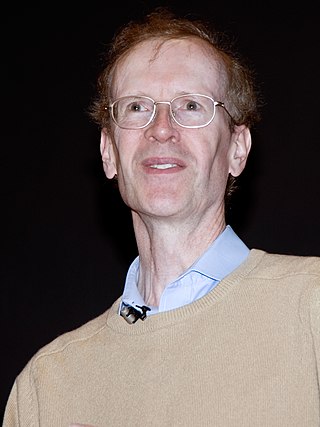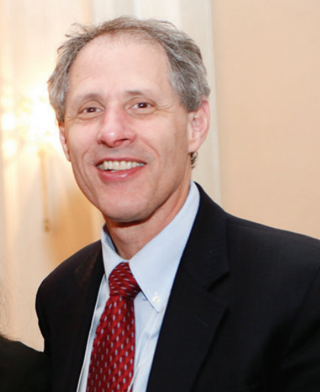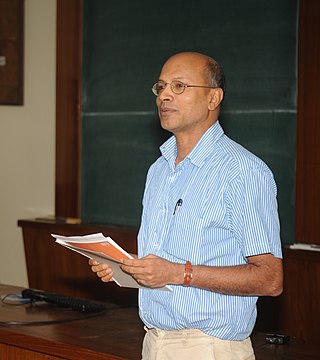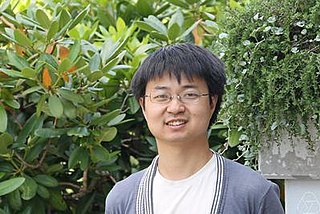
Sir Andrew John Wiles is an English mathematician and a Royal Society Research Professor at the University of Oxford, specialising in number theory. He is best known for proving Fermat's Last Theorem, for which he was awarded the 2016 Abel Prize and the 2017 Copley Medal and for which he was appointed a Knight Commander of the Order of the British Empire in 2000. In 2018, Wiles was appointed the first Regius Professor of Mathematics at Oxford. Wiles is also a 1997 MacArthur Fellow.
The Clay Mathematics Institute (CMI) is a private, non-profit foundation dedicated to increasing and disseminating mathematical knowledge. Formerly based in Peterborough, New Hampshire, the corporate address is now in Denver, Colorado. CMI's scientific activities are managed from the President's office in Oxford, United Kingdom. It gives out various awards and sponsorships to promising mathematicians. The institute was founded in 1998 through the sponsorship of Boston businessman Landon T. Clay. Harvard mathematician Arthur Jaffe was the first president of CMI.
Paul Joseph Cohen was an American mathematician. He is best known for his proofs that the continuum hypothesis and the axiom of choice are independent from Zermelo–Fraenkel set theory, for which he was awarded a Fields Medal.

Jean-Pierre Serre is a French mathematician who has made contributions to algebraic topology, algebraic geometry and algebraic number theory. He was awarded the Fields Medal in 1954, the Wolf Prize in 2000 and the inaugural Abel Prize in 2003.
Howard Percy "Bob" Robertson was an American mathematician and physicist known for contributions related to physical cosmology and the uncertainty principle. He was Professor of Mathematical Physics at the California Institute of Technology and Princeton University.

Vladimir Gershonovich Drinfeld, surname also romanized as Drinfel'd, is a renowned mathematician from the former USSR, who emigrated to the United States and is currently working at the University of Chicago.
The Fulkerson Prize for outstanding papers in the area of discrete mathematics is sponsored jointly by the Mathematical Optimization Society (MOS) and the American Mathematical Society (AMS). Up to three awards of $1,500 each are presented at each (triennial) International Symposium of the MOS. Originally, the prizes were paid out of a memorial fund administered by the AMS that was established by friends of the late Delbert Ray Fulkerson to encourage mathematical excellence in the fields of research exemplified by his work. The prizes are now funded by an endowment administered by MPS.

Paul D. Seymour is a British mathematician known for his work in discrete mathematics, especially graph theory. He was responsible for important progress on regular matroids and totally unimodular matrices, the four colour theorem, linkless embeddings, graph minors and structure, the perfect graph conjecture, the Hadwiger conjecture, claw-free graphs, χ-boundedness, and the Erdős–Hajnal conjecture. Many of his recent papers are available from his website.

Marshall Hall Jr. was an American mathematician who made significant contributions to group theory and combinatorics.
Van H. Vu is a Vietnamese mathematician and the Percey F. Smith Professor of Mathematics at Yale University.
Sossina M. Haile is an American chemist, known for developing the first solid acid fuel cells. She is a professor of materials science and engineering at Northwestern University, Illinois, US.

Thomas Felix Rosenbaum is an American condensed matter physicist, professor of physics, and the current president of the California Institute of Technology (Caltech). Previously, Rosenbaum served as a faculty member and Provost of the University of Chicago. He has also served as the vice president for research at Argonne National Laboratory.

Dipendra Prasad is an Indian mathematician. He is a professor of mathematics at the Indian Institute of Technology Bombay. He is a number theorist known for his work in the areas of automorphic representations and the Gan–Gross–Prasad conjecture. He is currently the president of Commission for Developing Countries (CDC) of International Mathematical Union (2018–2022) and of Indian Math Society (2021–2022).
Kate Adebola Okikiolu is a British mathematician. She is known for her work with elliptic differential operators as well as her work with inner-city children.
Leonard J. Y. Schulman is professor of computer science in the Computing and Mathematical Sciences Department at the California Institute of Technology. He is known for work on algorithms, information theory, coding theory, and quantum computation.

Xinwen Zhu is a Chinese mathematician and professor at Stanford University. His work deals primarily with geometric representation theory and in particular the Langlands program, tying number theory to algebraic geometry and quantum physics.

Kari Kaleva Vilonen is a Finnish mathematician, specializing in geometric representation theory. He is currently a professor at the University of Melbourne.
Hao Huang is a mathematician known for solving the sensitivity conjecture. Huang is currently an associate professor in the mathematics department at National University of Singapore.

Wei Gao is a Chinese-American biomedical engineer who currently serves as an assistant professor of medical engineering at the California Institute of Technology (Caltech). Gao has been a professor at Caltech since 2017 and is an associate editor of the journals Science Advances, npj Flexible Electronics (Nature), Journal on Flexible Electronics (IEEE), and Sensors & Diagnosis.
The Alexanderson Award is given annually by the American Institute of Mathematics.










